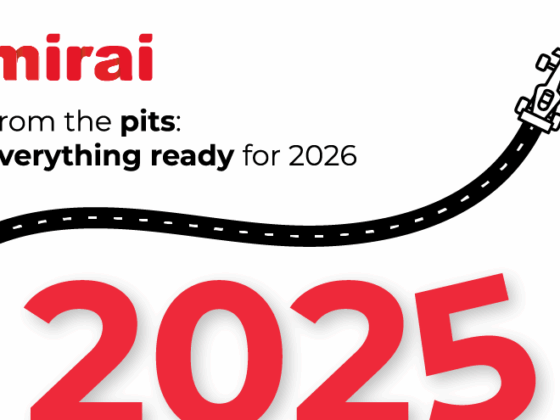
It seems like every year, a new stadium opens its doors and sets a new standard for what technological innovation can look like for sports and entertainment venues. For example, this year saw the opening of Co-op Live in Manchester, England, a music-first arena built with 10,500 square meters of rooftop solar panels along with a state-of-the-art audio-visual system. With exciting sustainability and technological developments being implemented at stadiums and arenas around the globe, it’s an exciting time for sports and entertainment destinations to reimagine their operations and deliver more personalized fan experiences that create a better experience and drive more revenue.
Here are some of the top trends we predict will drive the industry in 2025 and beyond:
1. Optimizing Venue Operations and Fan Engagement with AI
AI is helping sports and entertainment venues provide practical solutions to enhancing the fan experience. AI’s ability to sort through vast amounts of data is invaluable for venue operators. It can identify larger trends and provide practical solutions that drive revenue and minimize waste. For instance, AI can analyze thousands of hours of spatial intelligence data to determine the most popular areas of a stadium at different times, helping operators make informed decisions about staffing, concessions placement, and fan engagement strategies.

In concessions, AI is a game-changer. It can track menu item popularity and price elasticity, enabling operators to make data-driven decisions. For example, if a particular menu item is consistently popular, AI can recommend increasing stock levels to meet demand. AI can also analyze promotion redemption rates, helping venues design more effective campaigns. By understanding which promotions resonate with fans, venues can create targeted offers that drive sales and improve the overall fan experience.
Embedding AI into concessions areas takes the fan experience to the next level. By accurately tracking popular menu items and promotions, operators can ensure they stock fan favorites and run efficient promotional campaigns. AI also helps operators understand price elasticity, allowing them to set optimal prices and maximize revenue. With AI insights, venues can operate more efficiently, reduce waste, and ultimately provide a higher-quality experience for their guests.
AI is an indispensable tool for sports and entertainment venues, offering practical solutions and insights that enhance operations and the fan experience. By leveraging AI’s capabilities, venues can make data-driven decisions that ultimately create memorable and enjoyable experiences for their guests.
2. Curating Personalized Fan Experiences
As the world of sports and entertainment evolves, venues are leveraging technology to create personalized and engaging experiences for their guests. By gathering data and understanding their guests’ preferences, venues can offer tailored promotions and convenient information to enhance their visit. For example, venues can direct a parent who brings his children to every game towards the nearest family entrance or offer a high-powered executive premium packages, including exclusive perks such as lunch before an event.
Modern technology solutions provide venues with a wealth of data, which can then serve as the backbone for comprehensive personal profiles of each individual guest. Relevant data includes purchase history, concessions preferences, and even payment methods, which can also help venues make informed decisions about their offerings. By converging venue operations and marketing/fan engagement, venues can target specific fan segments and create rewarding experiences that keep guests coming back.
The key to a successful fan experience lies in the convergence of venue operations and marketing strategies. By analyzing guest behaviors and preferences, venues can design themed nights and events that cater to specific fan segments, creating a sense of community and engagement. This convergence allows venues to target their marketing efforts effectively and build a loyal fan base that extends beyond the boundaries of the venue itself.
By embracing technology and data-driven insights, sports and entertainment venues can curate personalized journeys for their guests, ensuring each visit is memorable and tailored to their unique preferences. This approach not only enhances the fan experience but also fosters a sense of loyalty and engagement that keeps guests returning time and time again.
3. Creating Communal Spaces
Sports and entertainment venues are no longer just destinations for events; they are transforming into communal spaces that serve their communities 365 days a year. Often funded by public funds, these venues are designed to be gathering points and hubs of activity for the entire community. With the rise of entertainment districts, venues are now interconnected with sports books, restaurants, bars, residential areas, and parks, creating a vibrant and engaging environment.
Venue operators recognize the potential of this evolution and are leveraging the increased foot traffic to foster a sense of community and loyalty. They offer incentives to residents and event attendees, such as special prices or vouchers, encouraging repeat visits and a stronger connection to the venue. For example, residents of a connected apartment building might enjoy exclusive discounts, or fans attending an outdoor movie screening at a nearby park could receive vouchers for concessions on game days.
The concept of venue operations has expanded beyond the traditional game day experience to encompass real estate management. With the addition of residential living areas and entertainment districts, venues are becoming mini-cities, offering a diverse range of experiences and amenities. This transformation elevates the role of venues in their communities, creating spaces that bring people together and foster a sense of belonging.
By embracing their role as communal spaces, sports and entertainment venues are not only enhancing the fan experience but also contributing to the social fabric of their communities. This evolution showcases the power of venues to bring people together and create lasting memories, solidifying their place at the heart of their cities.








